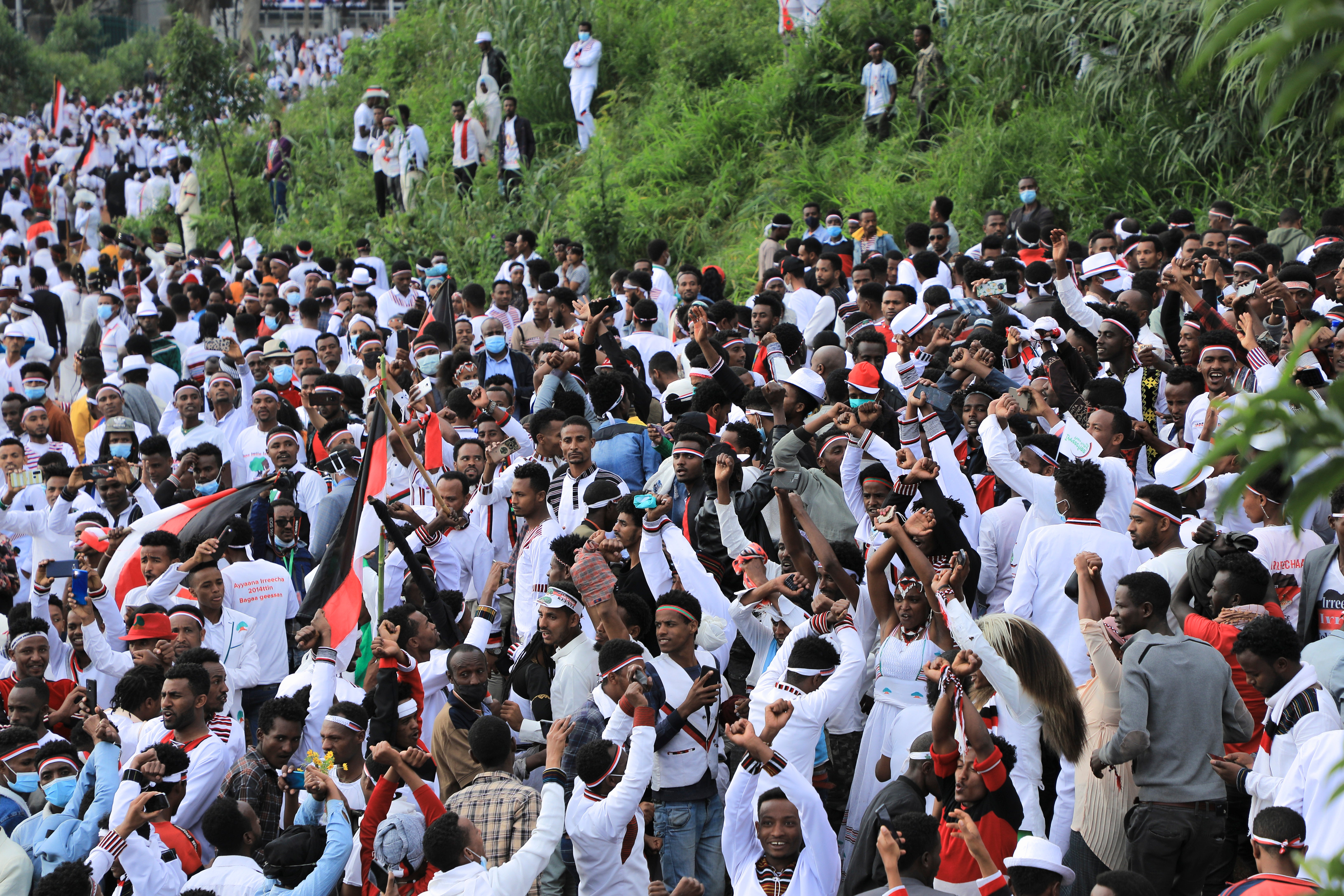Ethiopia's Oromo protest, demand freedom for jailed leaders
Members of Ethiopia’s largest ethnic group, the Oromo, are protesting against the government and have called for the release of jailed opposition figures as they gathered for their annual Thanksgiving festival of Irreecha

Your support helps us to tell the story
From reproductive rights to climate change to Big Tech, The Independent is on the ground when the story is developing. Whether it's investigating the financials of Elon Musk's pro-Trump PAC or producing our latest documentary, 'The A Word', which shines a light on the American women fighting for reproductive rights, we know how important it is to parse out the facts from the messaging.
At such a critical moment in US history, we need reporters on the ground. Your donation allows us to keep sending journalists to speak to both sides of the story.
The Independent is trusted by Americans across the entire political spectrum. And unlike many other quality news outlets, we choose not to lock Americans out of our reporting and analysis with paywalls. We believe quality journalism should be available to everyone, paid for by those who can afford it.
Your support makes all the difference.Members of Ethiopia’s largest ethnic group, the Oromo protested Saturday against the government and called for the release of jailed opposition figures as they gathered in the capital for their annual Thanksgiving festival of Irreecha.
Scores of people in the center of Addis Ababa chanted slogans such as “Down, down Abiy!” a reference to Prime Minister Abiy Ahmed after performing ritual ceremonies to mark the end of the rainy season and the beginning of the harvest in Oromia state.
They also chanted support for Oromo opposition politician Jawar Mohammed, who was arrested last year following an outbreak of deadly violence sparked by the death of a popular Oromo singer. He remains behind bars along with several others, accused of terrorism. Activists claim their detention is politically motivated.
Hundreds of thousands of people attended Saturday’s celebrations, which proceeded peacefully despite the protests and amid a heavy security presence. A police spokesman would not comment on any arrests of protesters.
The Oromos have historically expressed frustration at their perceived economic and political marginalisation. Abiy is the country’s first Oromo leader, but he faces growing criticism by some Oromo that he hasn’t done enough for them.
Parts of Oromia have experienced outbreaks of violence in recent years as regional security forces battle a secessionist insurgency there. They have been accused of committing human rights abuses against civilians, including summary executions.
Ahead of last year’s celebrations, hundreds of people were arrested on suspicion of plotting attacks and causing unrest. During the festival in 2016, several dozen worshippers were killed in a crush after police fired tear gas and rubber bullets at anti-government protesters.